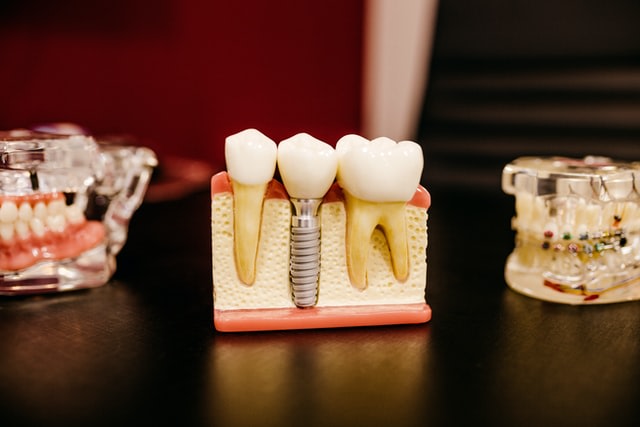Is it worth taking out supplementary dental insurance?
Dental treatments can quickly become really expensive, especially for dentures like crowns and implants, root canal treatments or orthodontic measures. In these cases, the statutory health insurance providers will only pay for standard care, and those affected will have to finance the remaining part themselves. Good supplementary dental insurance can cushion the avalanche of costs and reduce one's own share of the costs of the dental treatment to zero to ten percent.

Before you take out supplementary dental insurance, however, you should weigh up the costs and benefits. With good supplementary dental insurance, the price-performance ratio is right and the dental treatments are not limited. Since monthly costs of 20 to 40 pounds are to be expected with private supplementary dental insurance, it is also worth assessing individual factors. How likely are you to need dentures in later years? In some cases, it can make sense to save money yourself instead of paying high monthly insurance premiums.
Why take out supplementary dental insurance?
Since many people need dentures during the course of their lives, it is definitely worth broaching the topic of supplementary dental insurance. Because if you only have statutory insurance, you can quickly be down several thousand euros. The reason for this is that the fixed subsidy is set at 60 percent by the statutory health insurance providers, regardless of whether dental patients opt for the stipulated standard care or a more expensive treatment. This principle is illustrated by the following example:
If a standard treatment (e.g., for a crown) costs 800 pounds, for example, 480 pounds (= 60%) will be reimbursed by the health insurance provider. However, if someone opts for a higher quality restoration and has to pay £ 1,200 for it, the fixed subsidy is still 480 pounds. In this case, you would have to pay 720 pounds yourself, but dental insurance would have covered the costs in full, or at least predominantly.
For this reason, supplementary dental insurance makes absolute sense with regard to expensive treatments, such as implants or braces. If you talk to your dentist, they can tell you how likely expensive dental treatments will be in your case.
What should you look out for with supplementary dental insurance?
No cap on the amount for implants: for example, no limit to only 4 implants per jaw, and no maximum reimbursement limit "per implant"
Bone augmentation – sometimes also called "functional analysis and functional therapeutic measures" – should be included in the contract
Premium: this should be based on a percentage of the total costs actually incurred – good supplementary dental insurance will cover at least 80% to 90% of the patient's own contribution
These premiums should cover: fillings, prophylaxis, dentures, dental treatment measures and, for children, orthodontics
Waiting times: there are often long waiting times, or the costs are not fully covered during the first three to four years (restricted benefits)
Answer health questions honestly: if it turns out that dental diseases have been concealed, private supplementary dental insurance will be void in the event of a claim

Supplementary dental insurance for teeth straightening
Orthodontic and surgical maxillofacial treatments are not only an important issue for children. More and more adults are deciding to have their misaligned teeth corrected. The costs for this can range between £2,000 (slight misalignments) and several thousand euros (orthodontic interventions). Supplementary dental insurance can also cover a large part of the costs here.
MORE ABOUT TOOTH STRAIGHTENING FOR ADULTSWhat is the best supplementary dental Insurance?
To determine the best supplementary dental insurance, it is helpful to use comprehensive comparisons or test reports. Stiftung Warentest, for example, took a close look at 249 supplementary dental insurances and rated 88 offers as "very good". The test winners have to pay monthly fees (for a 43-year-old customer) of £ 36 to £ 46. In general, you should always pay attention to individual factors and needs.
Cost of supplementary dental insurance
The cost of supplementary dental insurance per month depends on personal factors – such as age and previous treatments – as well as the desired scope of insurance. As a 30-year-old, you can get inexpensive supplementary dental insurance for as little as € 8 a month. The older you are, the higher the sum insured. A tariff of between £ 20 and £ 40 per month is normal. It therefore makes sense to take out supplementary dental insurance between the ages of 30 and 40, as the teeth are usually still healthy and the monthly contributions are lower.
DR SMILE partner practices near you
Book an appointment at a DR SMILE partner practice near you